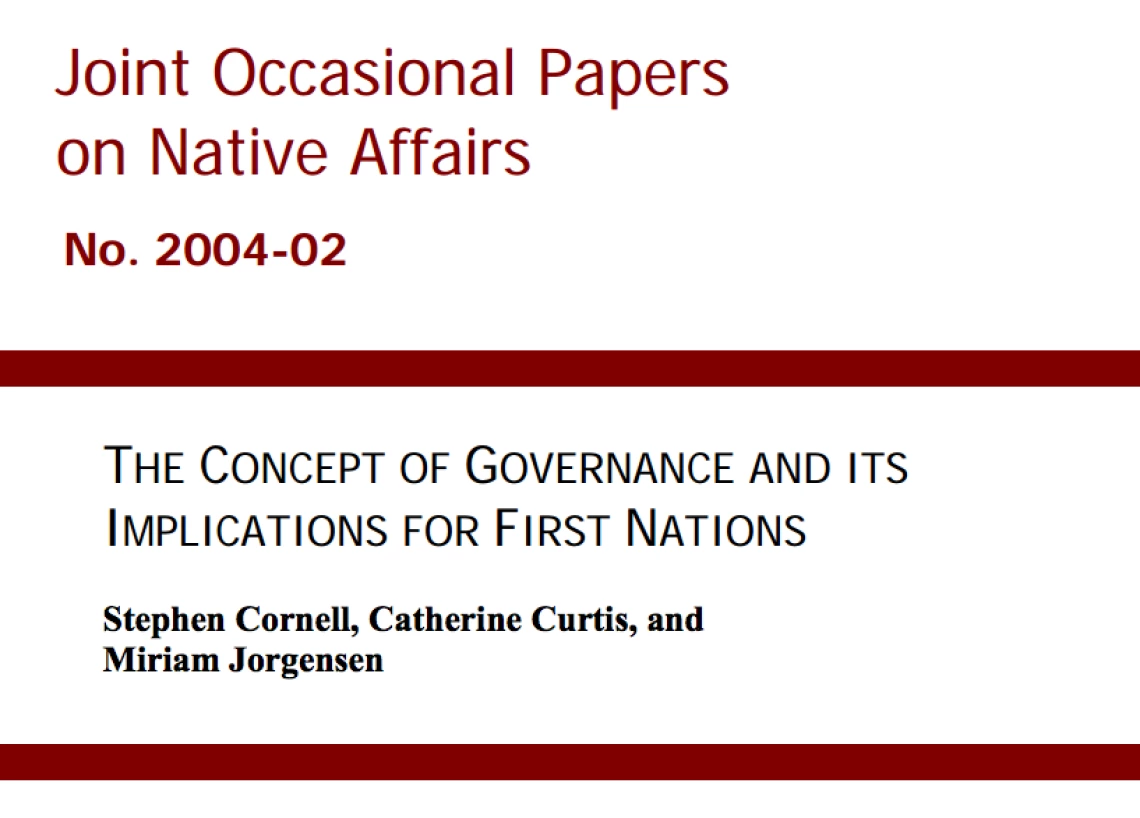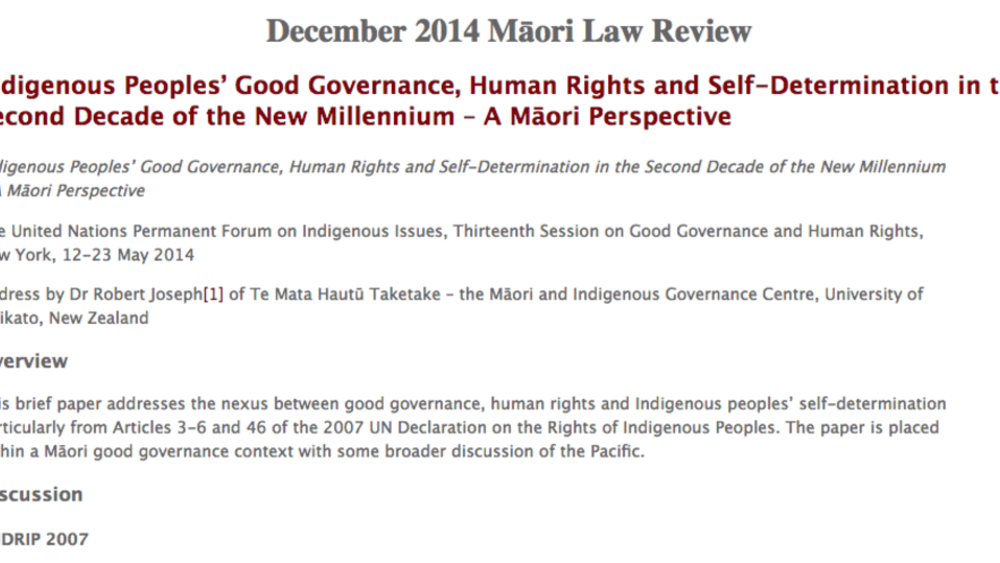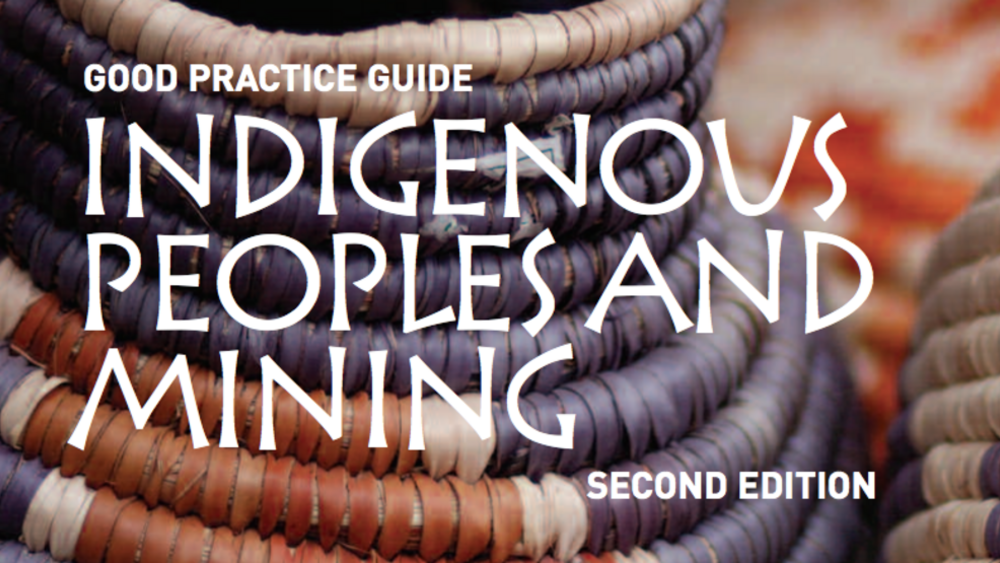What is governance? What is government? What does each do? And what distinguishes good governance - or good government - from bad? Why is the quality of governance important to the success of human societies? And what is the significance and meaning of self-governance? And What does effective self-governance involve and how can self-governing systems be built?
This paper explores these questions and their implications for First Nations, drawing in particular on a large body of research on governance and development among indigenous nations in the United States and Canada. However, the topic of governance is an enormous one, and we can only begin to address those questions here.
Additional Information
Cornell, Stephen, Catherine Curtis, Miriam Jorgensen. "The Concept of Governance and Its Implications for First Nations". Joint Occasional Papers on Native Affairs No. 2004-02. The Harvard Project on American Indian Economic Development, Native Nations Institute for Leadership, Management, and Policy, The University of Arizona. Tucson, Arizona. 2004. JOPNA.




